Some take the cautious route; others charge into the unknown. In this exclusive interview, we chat with Sea to Summit’s newest brand ambassador, adventure photographer Daygin Prescott, about chasing new adventures, pushing both inner and outer boundaries, and smashing his list of annual goals.
So, you’re fresh from a run. Are you running trails or on concrete?
A bit of both. I live on the Sunshine Coast in Queensland, close to the beach. But I’m doing a marathon this weekend. A trail marathon. I’m not a runner by any means, but figure I’ll give it a go.
Have you trained up to the 42km?
Not really. The other week I did a 50km trail run, and that was pretty brutal. I kept twisting my ankle on loose rock and roots. But it was fun. It’s nice to put your body through some pain every now and then.
Agreed. I just saw you did El Capitan [Yosemite National Park]. How was that?
Yeah, it was epic. I was really overwhelmed by everything in the States. Everything is significantly bigger than what we have in Australia.
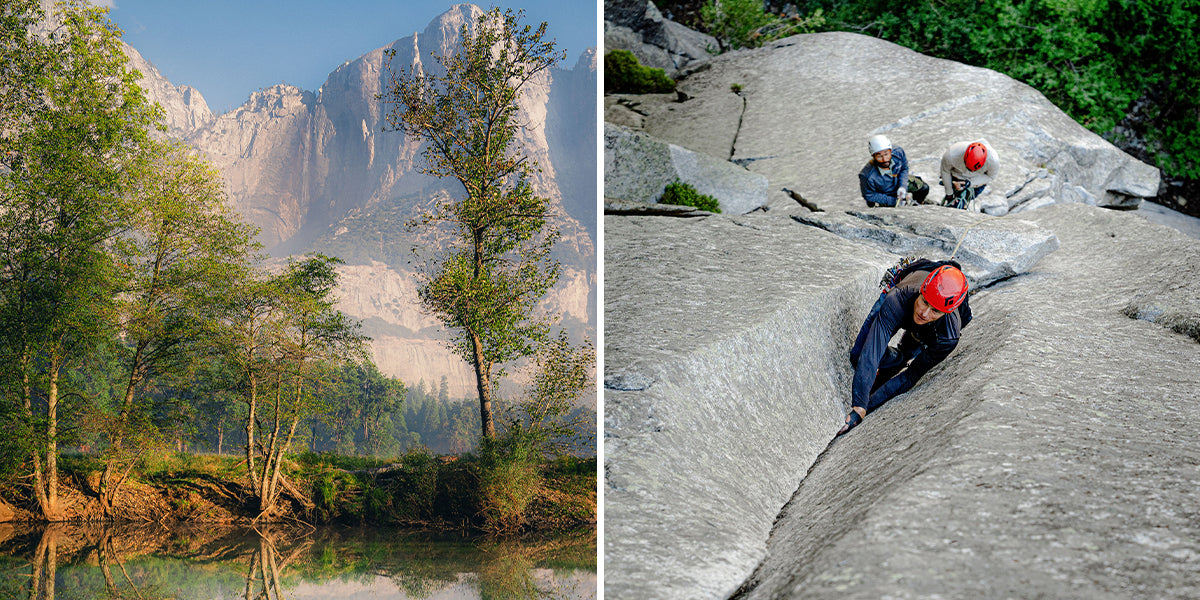
They call El Cap the center of the rock climbing universe. Which it kind of is. And it was one of the big things I had on my list for the year. When we were on the nose, I was hoping I’d get scared; like, really feel vulnerable and exposed. But surprisingly I felt super comfortable most of the time.
Because I haven’t been climbing that long, really.
That’s exactly what I was going to ask next: less than two years and you’re climbing El Cap?
It took me one year, nine months since I first tied into a rope to get to the top of El Cap. It was a pretty steep learning curve.
When we first arrived in the valley and looked up, I was like, Whoa. It’s just so steep the whole way up and I’ve never seen a piece of rock that big in my life. But then you realize it’s the one thing you know how to do, and you just have to do it for a long time.
I guess that relates to anything, really. It’s not necessarily that difficult. You just have to do it for a long time. That’s the hardest part. A lot of people can do one pitch of rock or aid climbing. But to do it 30 times in a row, over a few days, can be pretty daunting.
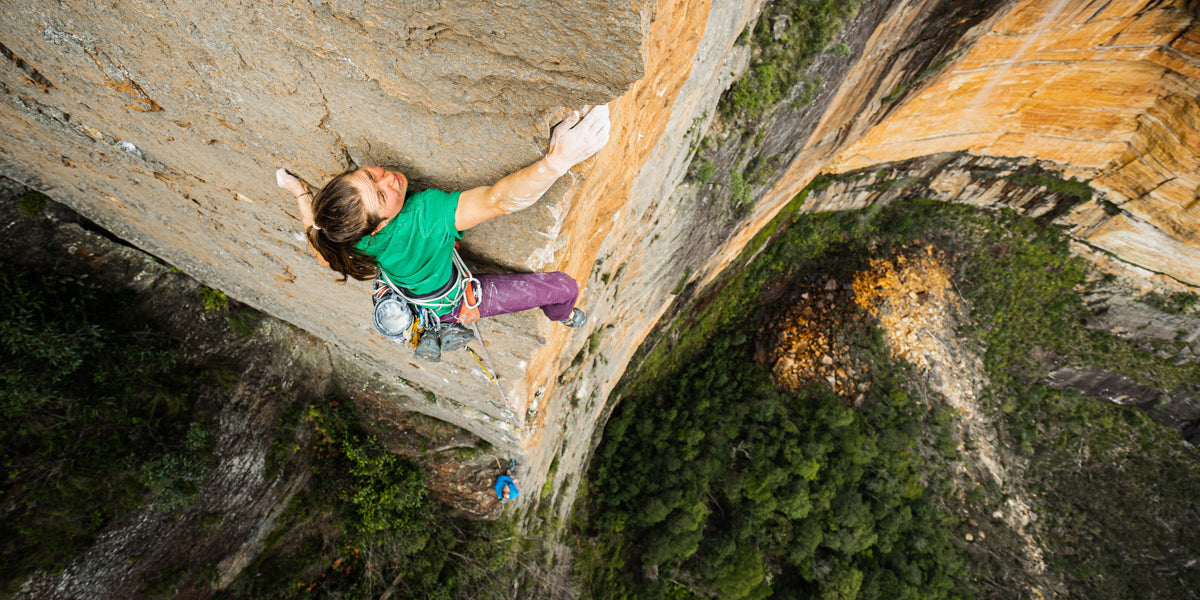
It sounds like the marathon version of rock climbing.
Totally.
So, how'd you get started in adventure photography?
Well, I grew up in South Africa and moved here to Caloundra [QLD] when I was 12. I was always going down to the ocean and when I got a GoPro for Christmas I started using that in the water. In fact, if you look up my name on YouTube you’ll find a couple pretty good GoPro Hero 3 edits.
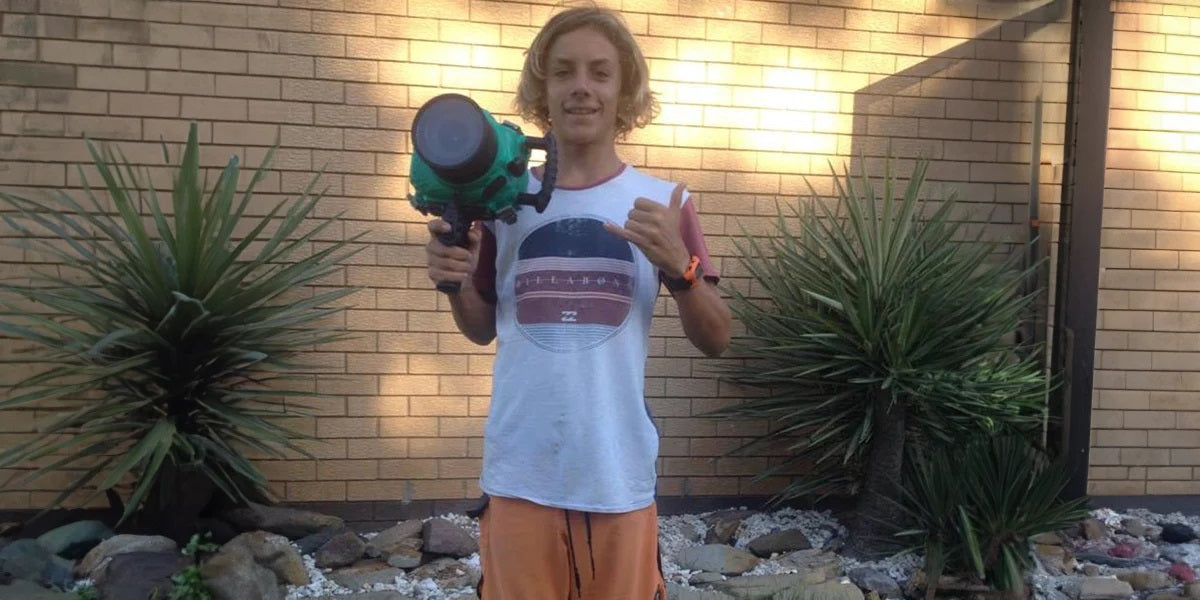
Noted for later.
I turned 14, and I bought a Canon 7D with a kit lens from a random guy down at the beach. Started taking more photos in the ocean, making videos, shooting photos for a local bodyboard store and selling surfing prints.
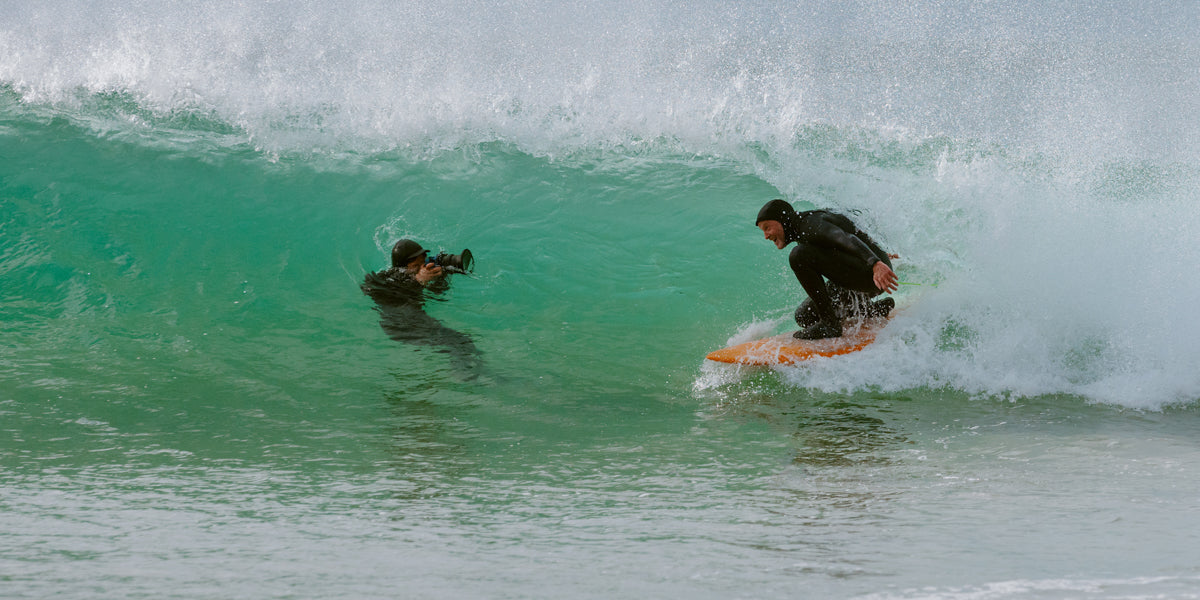
I wanted to be a professional surf photographer. So, when I finished school, I took six months off and moved to the south coast of NSW. But on the way down, I went to a music festival and broke my arm. [Laughs] I came back home and I started shooting outdoor stuff, reaching out to brands, shooting trail runners, doing free stuff to build my portfolio.
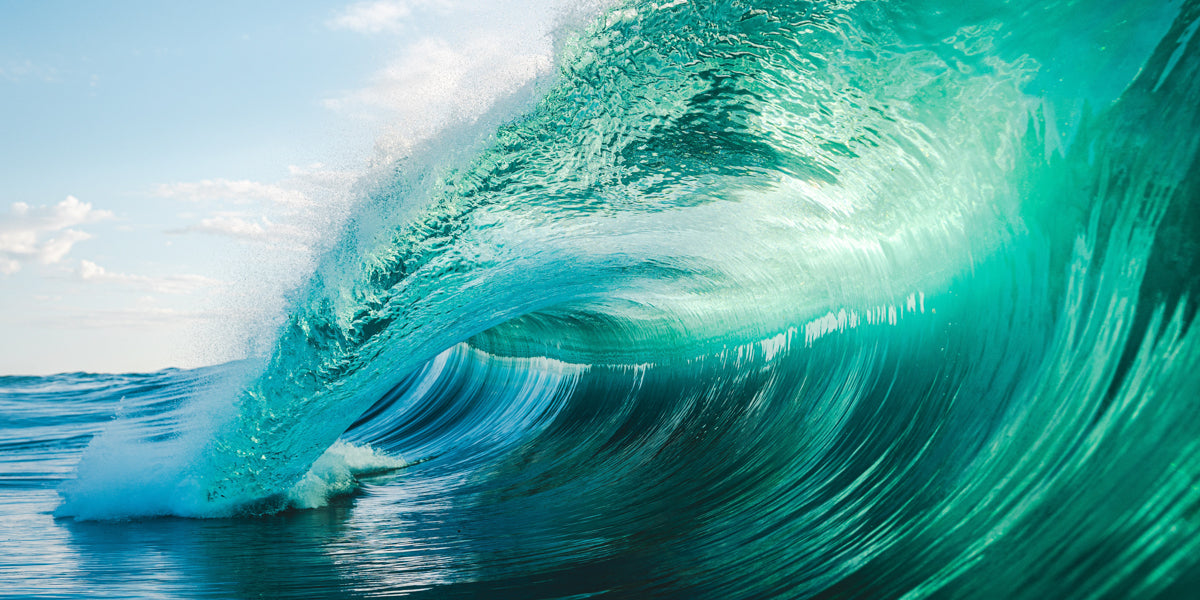
And that's when you were introduced to rock climbing?
I’d always been fascinated with rock climbing but never had any exposure to it. I became mates with a climber, and he took me a few times. Then, I built my skill set enough to go into the mountains by myself. I was just… obsessed with it.
I really love the whole process of having to work really hard to shoot these images and just the whole community: everyone's really excited about the same things.
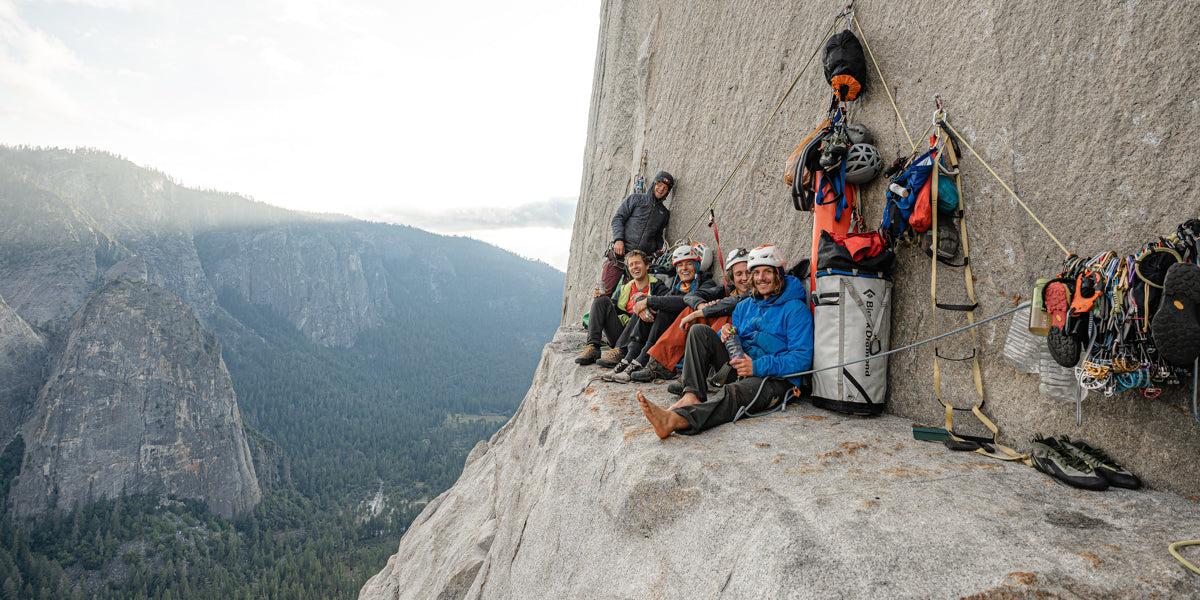
Out there, it seems there’s a balance to be made between creativity and adventure. Is there either one that you focus on more?
The purpose of my work is that I just want to get people excited to go outside. Because that’s the way I feel when I see work from people like Chris Burkard or Jimmy Chin or Renan Ozturk. They get me super psyched to go and explore these places, and to get sore legs and to be really cold and be really tired… but you get to experience all these things.
And so, ultimately, it’s about going on these adventures but being able to portray the experience in the best way possible.
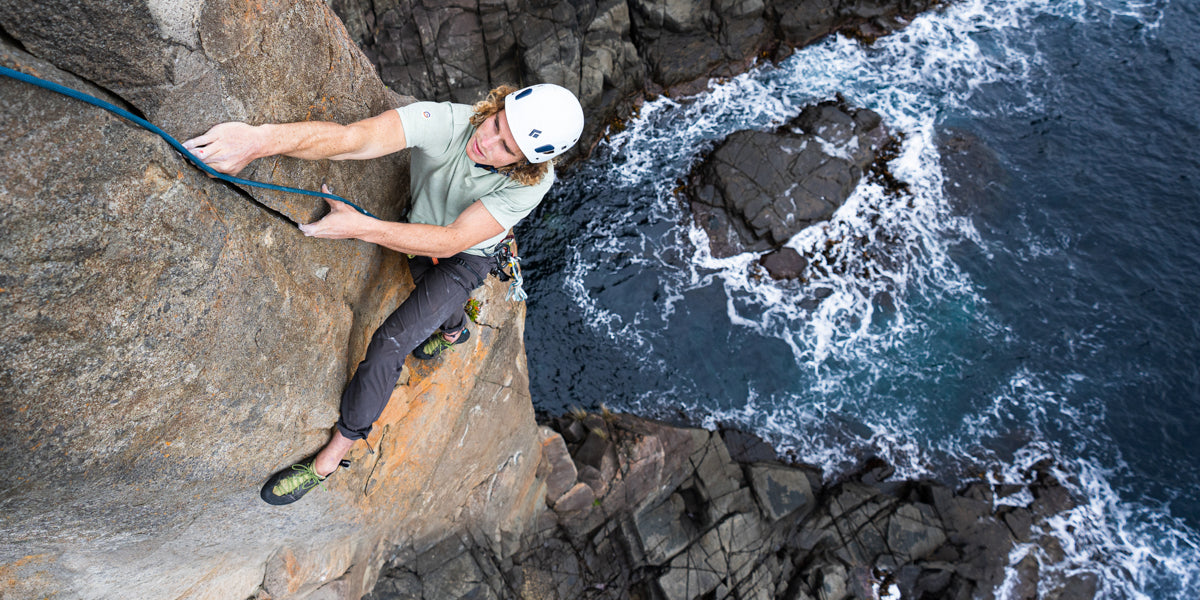
You’ve shot this campaign with Sea to Summit in Tasmania. How was that?
That was cool. That was really cool… Actually, one sec.
[Walks to get journal.]
This is my list for the year. I set a bunch of far-fetched goals. One of those was to be involved in a campaign for a big global brand. Another goal was to connect with a creative that inspired me, and another was to meet a mentor.
I ticked all three things off in one trip.
I’ve followed Denni and Sam [Sea to Summit production team members] for quite a while. I love Sam’s work and the way Denni shoots his commercial stuff. The fact that all three goals happened in one trip was pretty cool. It was a really good example of the creative process when there’s a whole lot of creative people involved.

Speaking of, I just saw you’ve been to China to shoot a hotel promo?
It was a cool time, it was high-end luxury accommodation and we spent barely anytime shooting at the hotel. The focus was a full-scale commercial and the experience of being around the hotel. I stayed in China for the full length of my one-month visa… so I just went travelling for three weeks after that.
Of course you did.
Yeah, I went over there with some climbing gear. I didn’t know anyone in China, but I caught a plane, train and a bus to a town called Liming, where there’s some really good rock climbing.
No one spoke an ounce of English and there were no rock climbers there. But after a few days, this lady came into town and we went climbing together. It was really fun. That was proof for me that if you can do it once, then why can’t you just keep doing it?
One of an adventure photographer’s biggest gripes seems to be equipment. How does good quality gear affect you on a trip like that?
You’ve got lenses, batteries, cameras, tripods, you’ve got all this extra weight. Having lightweight gear affords me more of an opportunity to create what I want to create. I can take a smaller bag, because my gear is more packable. I can walk for longer, faster… it’s all of these things that come together from having a lighter pack.
I’d never really put an emphasis on super high-quality gear until this year. Now, I wouldn’t go out with anything that isn’t the best at its job. And that’s because having gear that you can rely on in these places, that serves a whole bunch of purposes—lightweight, packable, all of these things—makes my job easier.
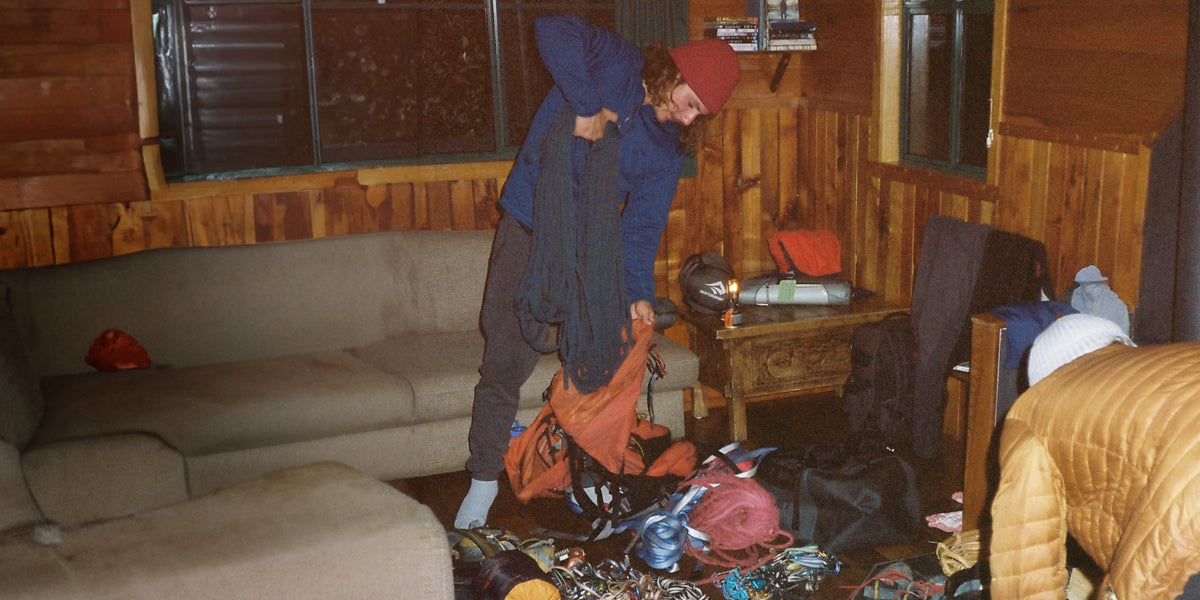
Future goals? I’ve seen your big list of ticked goals for 2023. What about 2024?
I’d love to go big wall climbing in Baffin Island [Canada]. One of those expeditions where you get to spend a long time in one place, and you’re not going to see another human.
I’d also like to go on a really long trip. You’re still not really living it even when you spend five nights in the mountains. I think when you go past two weeks on an expedition, that’s when a lot of stuff really changes. You get to really immerse yourself. I think that’s what I’ll be looking for next year.
Sounds incredible. Daygin, thanks for your time. And all the best with the marathon this weekend!
